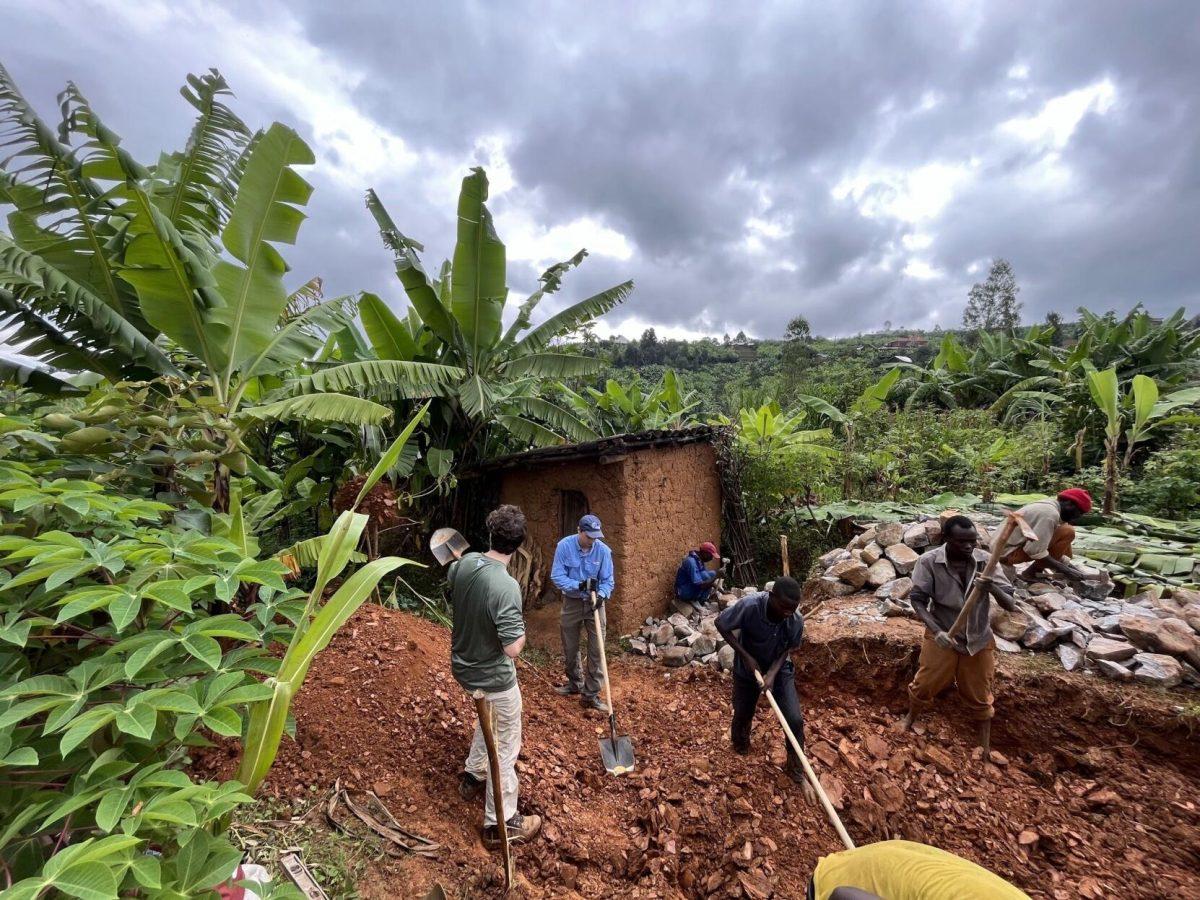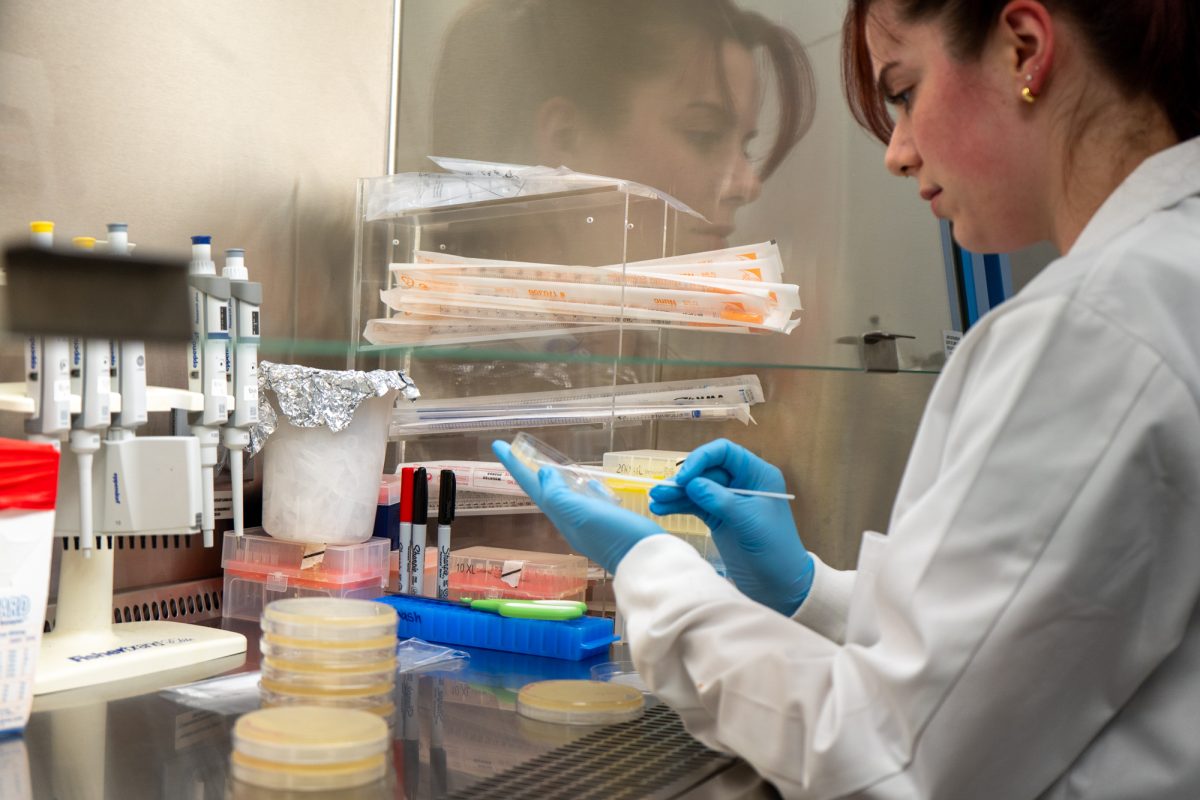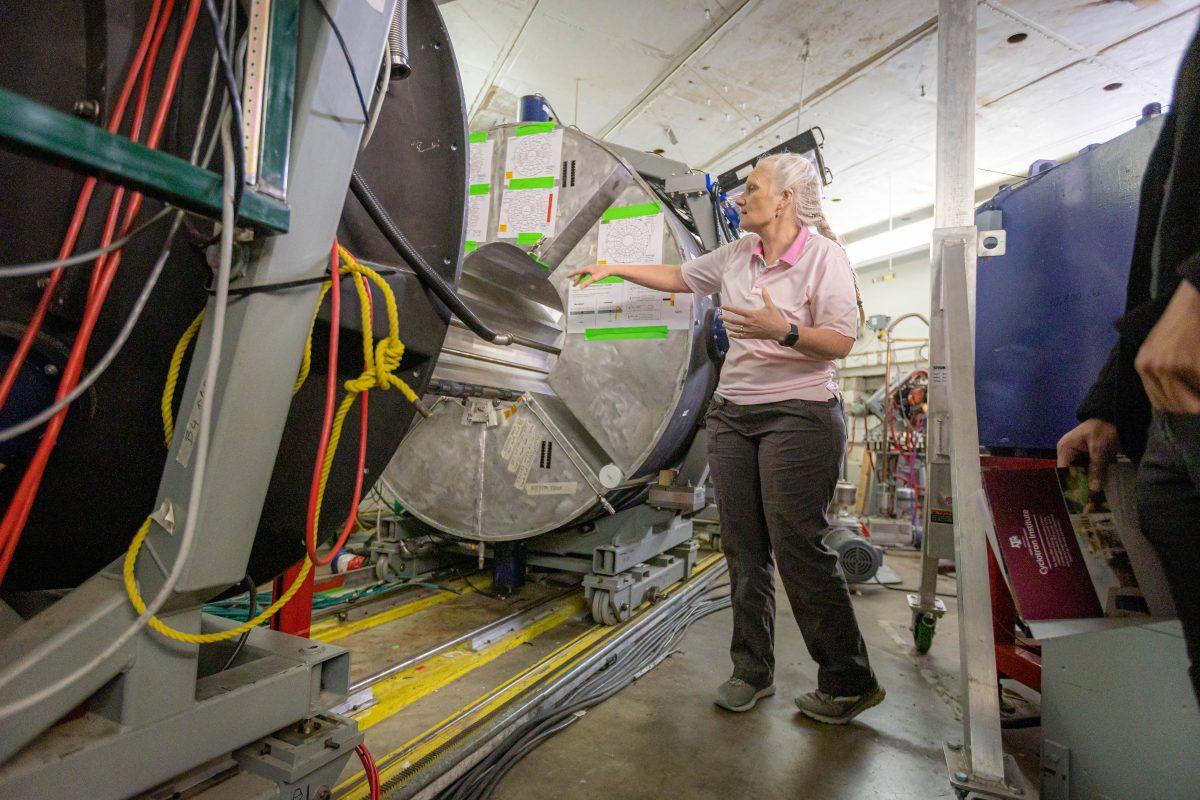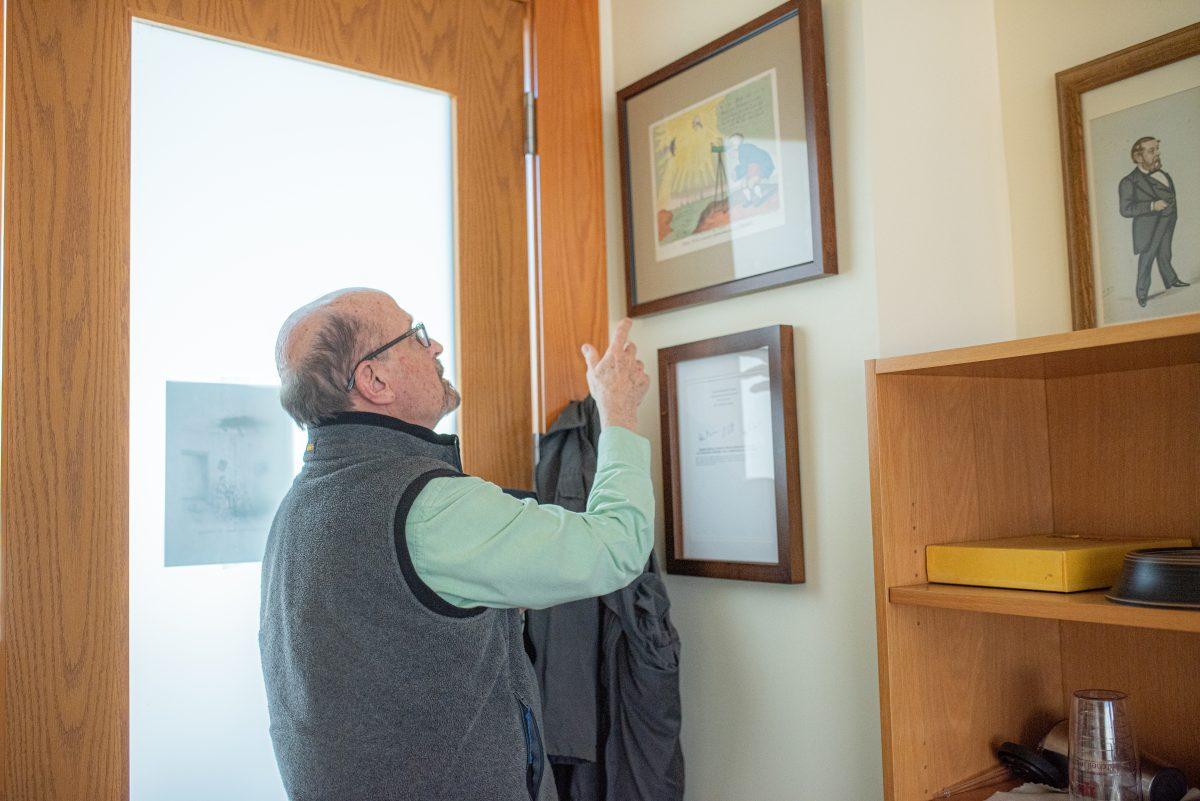Award-winning organization Engineers Without Borders at Texas A&M, or EWB-TAMU, is heavily led by students to resolve global issues and empower international communities. In summer 2022, six students and a professional mentor traveled to Rwanda to build latrines.
For four years, members of EWB-TAMU have been collaboratively working with the rural Rwandan community to improve sanitary and agricultural conditions by building household composting latrines.
Founder of Integrated Development Action Rwanda, or IDA-Rwanda, a non-governmental organization, Isaac Hatangimana discussed how and why he began The Rwanda Project and how EWB-TAMU became a primary collaborator to the project.
“IDA-Rwanda carries different projects to help vulnerable people and give them access to hygiene and sanitation health facilities that support women, women with disabilities and vulnerable orphans,” Hatangimana said. “We wrote a proposal, a project proposal, just promoting sanitation in rural areas and we sent it to EWB-USA. A few months later, EWB-USA announced to us that the project had been approved and adopted by EWB-TAMU. From then we have been in collaboration since 2018.”
Before traveling this summer to Rwanda, mechanical engineering senior Carla Hoefken, president of EWB-TAMU, said the organization continued to work despite the pandemic.
Josh Kosco, Rwanda project lead and mechanical engineering senior, said members of EWB-TAMU have put hard work into the Rwanda project by thoroughly preparing to build and maintain the latrines.
“We do provide a lot of the funding, and a lot of the source materials to the community and another part of what we do is our design process is all in house and part of that design process is writing and drafting operation of maintenance manuals,” Kosco said. “Our students at Texas A&M have given the community of Rwanda the methods, the tools, the materials to construct these latrines and then also how to use them, how to maintain them and operate them”
EWB-TAMU constructed the first latrine remotely by designing it, writing a construction manual and providing funding. Hoefken said she found the process fascinating as it was new to the engineering community.
“Usually, you are present during construction,” Hoefken said. “I was extremely proud of building this latrine while not only being thousands of miles away, but also working in great distance with the locals. It was really inspiring to get that primal picture of the constructed latrine.”
Architectural engineering senior Evelyn Abendroth, Rwanda project lead, said EWB-TAMU’s preparation for the development and overall project is different from other organizations.
“That is what really makes EWB stand apart from other non-profits,” Abendroth said. “Another non-profit built some latrines and they were just falling down within 10 years or so. They had no plans with keeping it up or showing the community how to fix them. We are just empowering the community to keep these up.”
This summer, six students and a professional mentor traveled to Rwanda to build a latrine on-site. Abendroth and Eli Norris, vice president of projects and materials science and engineering senior, were two of the six students who traveled to Rwanda. Abendroth said their routine and work in Rwanda was a great experience to move from the design process to getting hands-on with building the latrines.
“Our trip mainly consisted of waking up in the morning, heading out to our construction site,” Abendroth said. “Kinds scattering it out seeing what we are doing for the day and helping out the locals as much as we could. A lot of our work is the design process and we don’t get to be as involved as we want, but while we were there it was really nice to be hands-on. Kinda putting together what we were designing.”
Norris said the trip gave students a chance to live with the rural Rwandan community.
“We stayed right there in Matyazo, Rwanda. We ate and slept along with the locals,” Norris said. “We got full immersion in the experience. We would wake up, eat our breakfast and head right to the site where we were building the latrine and hang out there with them and teach them how to build the latrine throughout the day.”
EWB-TAMU completed their second latrine on their trip to Rwanda in May.
“Three latrines are in progress now and five more are planned to be built by the end of this year,” Abendroth said. “We will have a total of ten latrines in just the span of maybe eight months or so. Having the community of Rwanda know how to build these latrines will help with building these latrines next year. We will be setting that milestone.”
EWB-TAMU said they plan to reach a long-term goal of constructing 500 latrines. Kosco said EWB-TAMU is currently looking for long-term funding for the first 100 latrines. EWB hopes that with more funding, resources and community empowerment, more latrines will be constructed simultaneously.
Abendroth said EWB is a non-exclusive organization that truly makes a difference to the students and communities involved.
“EWB[-TAMU] is open to all majors and classifications,”Abendroth said. “We just want people who are passionate and want to make a difference. EWB provides unique experiences.”














